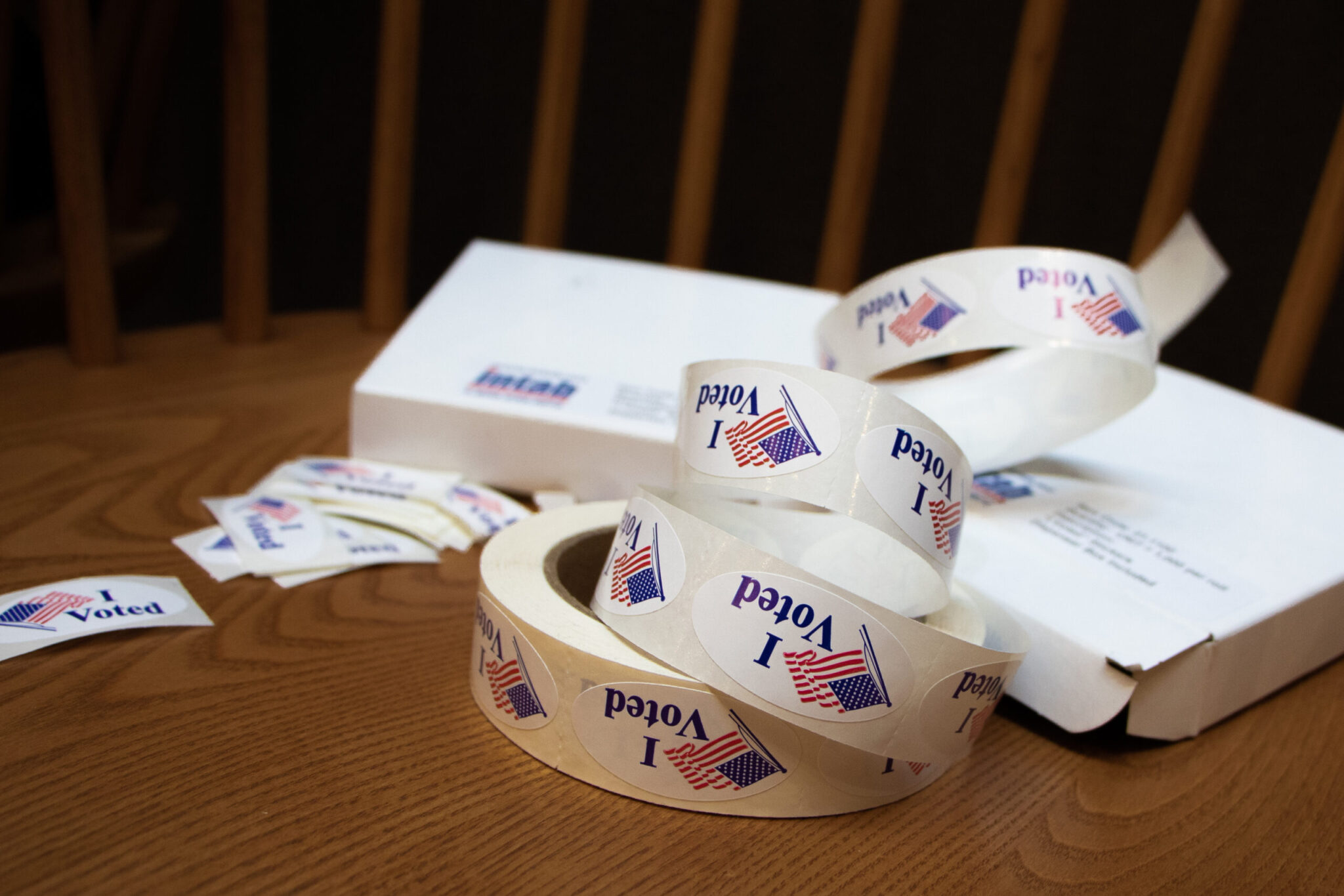New Haven Democratic primary sees low voter turnout
23.7 percent of eligible voters cast their ballots in mayoral and alder primary elections last week, which was significantly lower than in the last competitive mayoral primary in 2019.

Zoe Berg, Senior Photographer
Despite a contested mayoral race, New Haven’s Democratic primary saw low voter turnout across the city, continuing a recent trend of low engagement in local elections.
In total, 23.7 percent of New Haven Democrats cast their votes either in person or through an absentee ballot in the Sept. 12 election. Democrats in the city cast 7,900 ballots out of 33,377 registered voters, compared to 12,348 New Haven Democrats who voted in the last contested Democratic mayoral primary race in 2019.
Turnout was especially low in wards with large Yale student populations. In Ward 1, which includes eight residential colleges and Old Campus, only 49 of 681 registered Democrats — about 7 percent — voted in the primary. In Ward 22, which encompasses six residential colleges, the Democratic primary election turnout was higher than in the city’s overall average turnout by ward. Still, the ward reached only 237 votes, which represented 28 percent of eligible voters.
“It was clear by the overwhelming support from the people that did vote, that people were not interested in changing directions,” incumbent mayor Justin Elicker, who secured the Democratic nomination in the primary, told the News. “Oftentimes people are driven to vote if they are interested in big change.”
Aaron Goode ’04, a founder of the New Haven Votes Coalition, attributed low turnout in this year’s primaries partly to the lack of viable challengers among candidates. Elicker won the mayoral primary with over 70 percent of the votes. In 2017, when then-mayor Toni Harp defeated mayoral challenger Marcus Paca with a similar margin, 7,765 people voted in the election, which was close to the same number of voters this year.
Only six of 30 alder races had a contested Democratic primary, which also lowered the overall turnout. On average, 36 percent of Democrats in the wards with alder primaries voted in the primary. In the wards without a contested primary election for the ward’s alder, turnout was only 18 percent.
In the six wards with contested alder races, less competitive alder races saw lower turnout. In Ward 22, where incumbent Alder Jeanette Morrison won with an 82.7 percent majority, turnout was 28 percent. By contrast, Fair Haven’s Ward 15, which resulted in a contentious upset of incumbent Ernie Santiago, turnout was 40 percent.
Following Connecticut’s 2022 redistricting after the 2020 census, some New Haven residents were assigned to new districts. Goode told the News that some individuals showed up to the polling places assigned to their old districts, only to wait in line to vote and then be redirected to another location. He said he believes this was another major cause of low turnout this year.
Goode also pointed to Connecticut’s rigorous petition verification process as being a barrier for candidates to run. Mayoral challengers Shafiq Abdussabur and Tom Goldenberg both failed to petition their way onto the primary ballot, after many of their petition signatures were rejected by the City Clerk.
“I think a lot of his supporters didn’t vote because he wasn’t on the ballot,” Goode said of Abdussabur.
The only successful challenger in the Democratic primary races across the city was Ward 15 alder candidate Frank Redente Jr., who won with a 64.9 percent majority.
While Elicker told the News that he was happy about his overwhelming win, he also emphasized the importance of students being engaged voters.
“Yale students are a part of our community and they should engage in the community in elections and in many other ways,” Elicker said.
The News reached out to more than two dozen students to ask why they did not vote in the primary. Some chose to stay registered in their home states where they said that elections were more competitive. Others said they either did not know about the primary election or did not feel informed enough to make a decision on the candidates.
Sydney Morrison ’25, a registered Democrat in Ward 1, told the News she did not hear about the Democratic primary in New Haven.
“The biggest political thing that I care about is psychedelic decriminalization,” Morrison told the News. “And if that’s not happening in a city, I tend to not really care who gets elected.”
Mpilo Norris ’24 registered as a voter in New Haven when he moved from Maryland for college because he wanted to stay involved in local politics. Despite being registered, he did not vote in the most recent Democratic primary.
Norris explained that he did not vote because he did not properly research the primary candidates.
“I didn’t think I was well informed enough to actually go ahead and vote and make a decision,” Norris said.
Drake Christianson ’27 recently moved to New Haven and decided to register to vote in the Elm City instead of in his home state of Pennsylvania as he wanted to be involved in decisions that affect Yale.
Christianson told the News that moving to college and adapting to his new life was time consuming. Despite initially planning to vote, he said that he had no time to research primary candidates, but intends to vote in the general election in November.
The general election will take place on Tuesday, Nov. 7.







